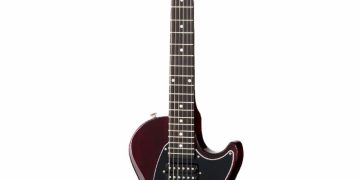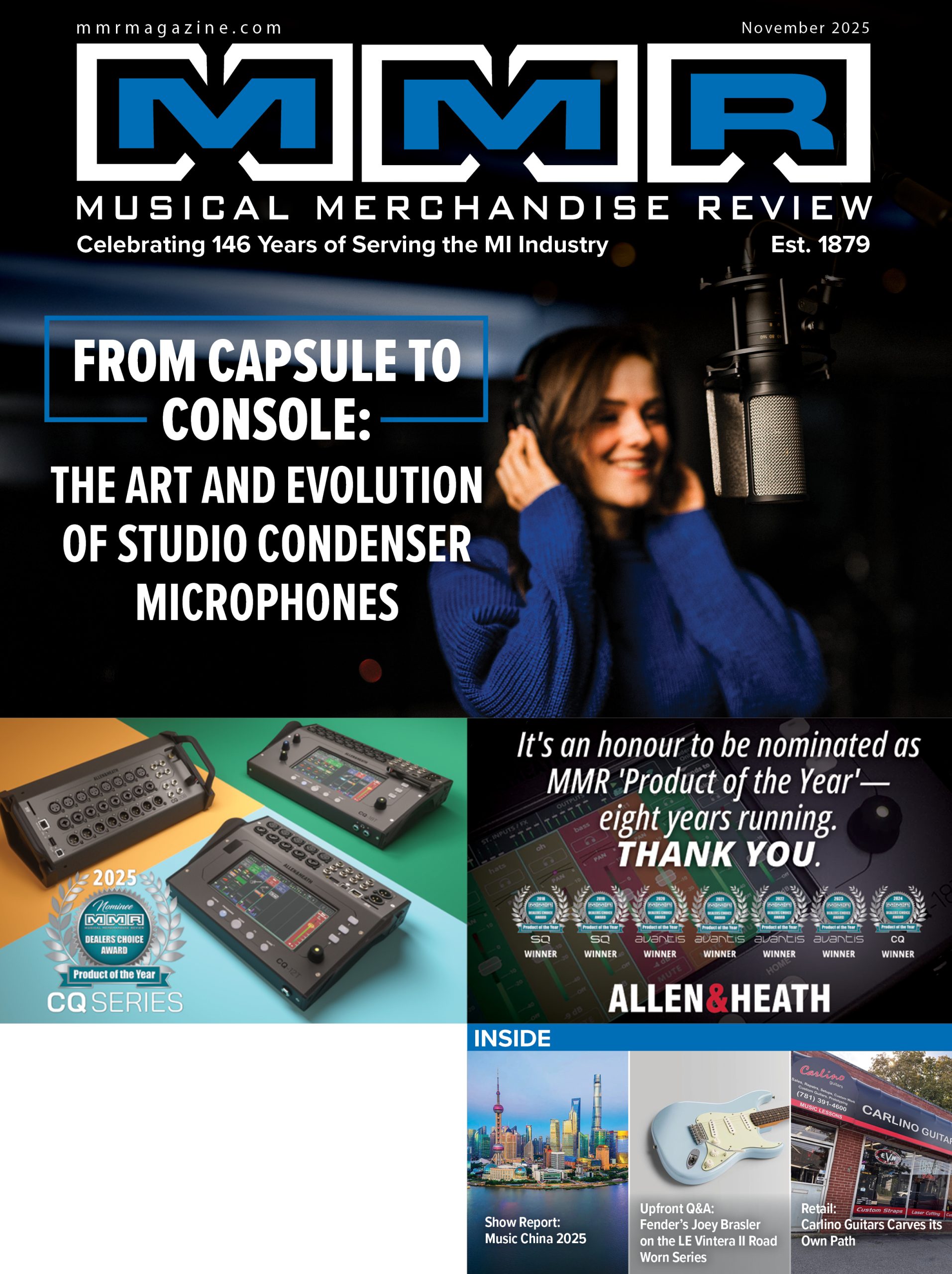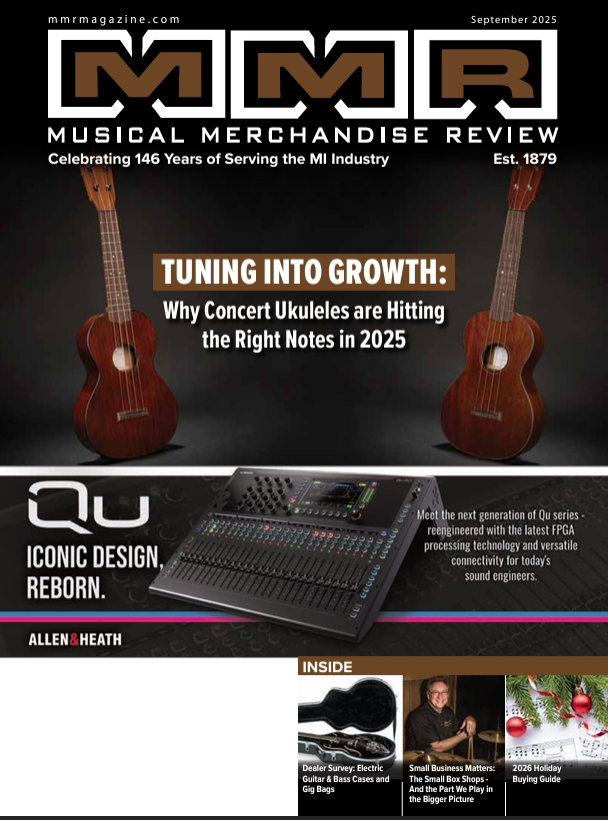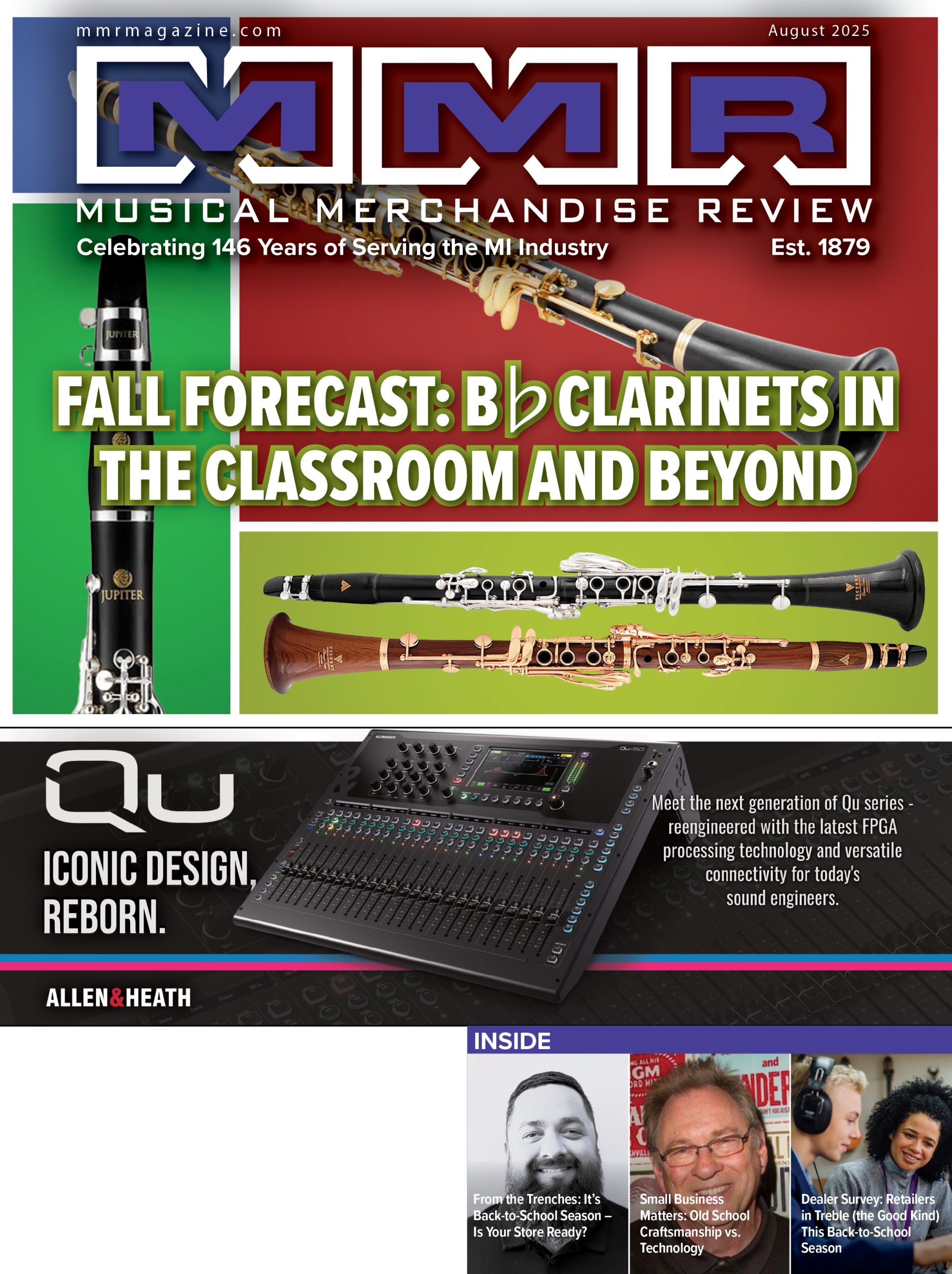In the summer of 2000, Crystal Morris and her father, Jerry Freed, brought a handful of molded plastic guitar cases to the Summer NAMM show in Nashville. They had no distribution partner, no warehouse, and no outside investment. What they did have was a vision—to create durable, affordable instrument cases that musicians and dealers alike could rely on.
Twenty-five years later, Gator Cases is a global brand with more than 1,000 SKUs spanning musical instruments, pro audio, AV, IT, and outdoor markets. For the independent retailers and buyers that make up the backbone of the music products industry, Gator has become synonymous with quality, reliability, and innovation.
A Dealer-Centric Model from Day One
Unlike many startups of its era, Gator didn’t chase distribution giants or bundle with instrument manufacturers. Instead, it went straight to the source: the local music retailer. “We believed in going direct to the dealer,” said Crystal. “That allowed us to cut a layer of margin, keep prices competitive, and most importantly, listen to what the dealers were hearing from their customers.”
That strategy proved essential. Gator’s entry-level molded cases gave retailers an upsell option between throw-in gig bags and flight cases, filling a critical void. “There just weren’t many midweight, affordable molded options on the market at the time,” Crystal recalled. “We found that space and filled it.”
Rapid Growth, Practical Innovation
Gator didn’t stop with guitar cases. By listening to dealer feedback and paying attention to performance needs, they quickly expanded into keyboard and rack cases, followed by soft gig bags, audio gear bags, and accessory storage. Their Frameworks line—stands for mics, keyboards, and monitors—offered dealers a cohesive family of products with strong margins.
“In many stores, we became the one-stop shop for accessories,” Crystal noted. “If you needed a case, bag, stand, or rack, Gator was the name you could recommend without hesitation.”
Retailers took notice. Gator’s modular lines and tiered good-better-best pricing helped salespeople meet the needs of entry-level students and professional touring musicians alike. It also allowed buyers to stock more categories under a single vendor account, simplifying inventory and logistics.
“We tried to make it simple for dealers to do business with us,” Crystal said. “Whether they were stocking five SKUs or 50, our goal was always to be the most reliable, most responsive vendor in their book.”
Acquisition and Expansion
One of Gator’s most strategic acquisitions came in 2018 with the purchase of Levy’s Leathers, the renowned Canadian strap manufacturer. “The quality and craftsmanship of Levy’s straps made them iconic,” said Crystal. “It was important to us to preserve their legacy and keep the factory and artisans in Nova Scotia.”
For dealers, the acquisition opened new bundles and cross-sell opportunities. Now, a single Gator order could include guitar cases, keyboard stands, mic stands, and premium straps. “It’s the kind of consolidation that makes life easier for the buyer and more profitable for the store,” she said.
Gator has also expanded into markets traditionally underserved by MI retailers. “We saw opportunities in categories like DJ, broadcast, podcasting, and even worship environments,” Crystal noted. “Dealers told us they needed more options to support local churches, event spaces, and educators—and we delivered.”
Supporting School Music and Rental Fleets
Beyond traditional MI, Gator has invested heavily in serving school music dealers and rental programs. Their growing B&O catalog includes cases for clarinets, flutes, saxophones, trombones, and string instruments—with features that account for school-specific needs like backpack straps, reflective safety strips, and weather-resistant exteriors.
Gator’s percussion cases and stackable classroom storage carts are designed for high turnover and daily use, making them ideal for school rentals. Dealers can position Gator as a high-value, low-maintenance option that keeps repair costs down.
“Retailers told us they needed cases that could survive a school year—and more,” Crystal said. “We built them to do just that.”
Modern Band and Tech-Ready Classrooms
As general music and modern band programs gain traction, Gator has created accessories and classroom tools for guitars, digital pianos, audio interfaces, and laptop-based recording. Their studio desks, desktop speaker stands, and cable management solutions help school-focused dealers serve tech-savvy programs.
“We’ve watched how music education is evolving,” Crystal added. “It’s not just about B&O anymore. Schools want to teach music technology, production, songwriting—and our products support those goals.”
Crystal also emphasized the practical needs of educators. “When a teacher is outfitting a lab, they’re not thinking about one stand—they’re thinking about 30 stands. Our packaging, pricing, and consistency all support that kind of scale, and dealers appreciate how easy we make it for them to quote, ship, and deliver.”
Retailer Tools and Loyalty
Gator’s relationship with retailers extends well beyond product. The company supports stores with branded displays, printed catalogs, drop-ship programs, dealer portals, and full access to photography and specs for online sellers.
“We want to make it as easy as possible for stores to represent our brand,” Crystal explained. “Whether you’re brick-and-mortar or e-commerce, we’re here to support your success.”
In recent years, Gator has expanded its digital assets for online retailers, including 360-degree product renders, detailed fit guides, and downloadable spec sheets. “We understand that today’s dealer may also be a content creator or online seller,” she said. “We’re investing in the tools that make that transition seamless.”
“We’re very focused on making sure we give love to everybody, not just the big guys,” Crystal added. “We know how vital mom-and-pop shops are to music education, and to the local music scene. That’s where the future of this industry lives.”
In-House Design, Global Manufacturing
Gator’s products are designed in Tampa, Florida, by an in-house team of industrial designers who work directly with educators, musicians, and dealers. Manufacturing is handled across facilities in the U.S., Canada, Vietnam, and China, with strict quality control and consistent materials.
“We’re not grabbing white-label products off the shelf,” Crystal noted. “Everything in our catalog is purpose-built, and dealers can trust that it’s been tested in real-world conditions.”
New product development is a cornerstone of Gator’s growth strategy. “We launch new products every quarter, and that cadence keeps dealers engaged,” Crystal said. “We’re always thinking ahead—what’s the next problem we can solve for the retailer or the customer?”
“We’ve built a team of industrial designers and product managers who live and breathe innovation,” she added. “Our mission is to create gear that helps musicians get to the gig, set up faster, and look good doing it.”
A Family Business with a Purpose
Jerry Freed, who co-founded the company with his daughter, passed away 11 years ago. But his presence is still felt in every part of Gator’s DNA. “He taught me the value of relationships and follow-through,” Crystal said. “When he passed, I realized I had a responsibility not just to our employees but to all the dealers who had put their faith in us.”
That mindset still guides Gator today. From crafting better student trumpet cases to developing eco-conscious packaging, Gator remains committed to giving dealers great products they can sell with confidence.
“We think about the dealer in every meeting,” Crystal said. “What does this packaging look like on the shelf? How quickly can it ship? How will it perform in a lesson room, or at the cash wrap? We walk in their shoes.”
Gator also has plans to increase live dealer trainings and webinar sessions. “The more confident a store’s staff is, the more likely they are to recommend a Gator product. We want them to know how everything works, fits, and solves real problems,” Crystal said. “And we’re making that education more accessible than ever.”
Expanding Retail Impact with Purpose
Gator’s team also reflects a deep understanding of legacy and continuity in the retail world. “A lot of the stores we sell to are multi-generational,” Crystal explained. “We know some of these dealers by name, and we’ve watched their kids grow up and take over the business. We’re not just another vendor to them. There’s trust built over years.”
This trust was especially evident during COVID. When the world shut down, Gator kept innovating. “We designed singer masks that opened up around the instrument or the mouth,” Crystal recalled. “We actually got patents on them. And we got letters from school music teachers thanking us for helping them get their programs running again. It kept us busy when everything else seemed uncertain.”
The company’s entrepreneurial flexibility has become part of its DNA. “Even during factory closures, we kept our supply chain moving,” she said. “That experience taught us how to be nimble and how to lead with heart and innovation.”
For Crystal, supporting music isn’t just business—it’s personal. “I’m one of those kids whose life was shaped by their local music store,” she said. “That’s why I care so much about the mom-and-pop dealers. They’re not just selling gear. They’re helping create the next generation of musicians.”
She continued, “We need to protect margin for those retailers. Whether it’s providing POP, merchandising, or helping them get seen—especially online—our job is to help make them more successful.”
A Network of Dealers—and Believers
As Gator looks ahead, its growth isn’t just about product SKUs or international expansion. It’s about staying rooted in the mission that started at that kitchen table. “At the end of the day,” Crystal said, “our dealers know we’re here for them. That we’re listening. And that we’ll continue to design for real musicians, real educators, and real stores.”
gatorco.com




















Looking Back on 2025: A Year of Controlled Chaos (Emphasis on “Controlled”)